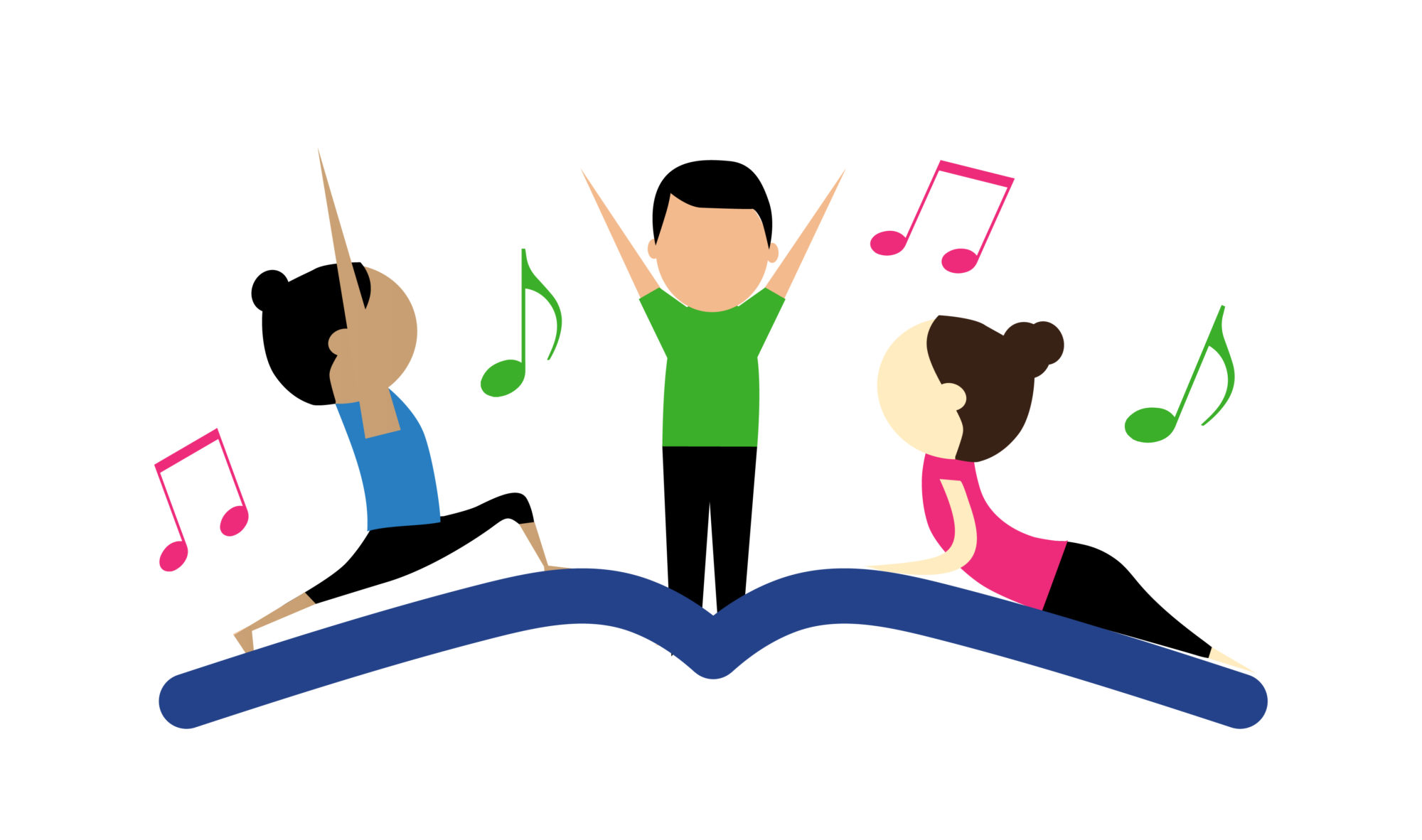I love that travel is often required in my work. It’s thrilling to see new places, I love sharing my passion for preschool movement and mindfulness with others, and I am continually inspired by the work being done by my colleagues. Here are my three biggest takeaways from last week’s Early Literacy Summit in Arizona.
- Sensory Storytime Applications for Stories, Songs, and Stretches!®
I’m often asked questions about how to adapt Stories, Songs, and Stretches!® for children with special needs, and I always feel inadequate in responding. I never want to present myself as an expert outside of the realms in which I know that I am, so I usually refer people to others in the field who study this topic specifically. This is why I was so excited for fellow Kentucky-based consultant Lynn Baker’s presentation on Sensory Storytimes for children with special needs. I know this is an area where I need to learn more! The session was great; I highly recommend taking one of her online courses if this is a subject you’d like to learn more about.
The part that struck me most in terms of how it relates to my work, was Lynn’s explanation that some children with sensory issues need very high-energy, active kinds of programming and others need a more quiet, calming experience. This was such a lightbulb moment for me! With Stories, Songs, and Stretches!®, we build programs that meld these two experiences: we use lots of movement in a very high-energy way in the first part of the program, and then come down to a more mindful and still experience toward the end. Learning this, I realized that much of what I teach in Stories, Songs, and Stretches!® could be applicable to programming for children with certain sensory needs. It’s very easy to imagine how the kind of embodied play instructed in Stories, Songs, and Stretches!® could be useful in high-energy sensory programs. Mindfulness props and practices could be useful not only in storytime for kids who need a quieter experience, but also out and about in life when a parent or child senses an overload coming on, in order to move the brain out of a state of stress and into a state of calm. Like many librarians, I see now that I was assuming that adapting my program for children with special needs would be an exhaustive process for which I was not properly prepared; how empowering and refreshing to learn from Lynn what kinds of interactions kids with special needs actually need.
2. Dr. Megan McClelland’s Research on Self-Regulation and Early Learning
I fully admit it…after seeing Dr. McClelland’s keynote, I am a total fangirl! Her work is awesome, and it helps make clear for on-the-ground practitioners how the ways in which the brain develops in the early years are interrelated. Social-emotional learning, motor skills, early literacy, early math….these skills are tied up in one another, not learned in an isolated bubble. Further, when we begin to examine the relationships around how these skills develop, synergistic connections can be found, meaning that practicing or building one kind of skill (such as motor skills) can improve another set of skills (such as social-emotional learning). Check out her work if you’re a nerd like me and this kind of research is up your alley. I’m personally really excited to read “Developing together: The role of executive function and motor skills in children’s early academic lives.” Plus, she shared this hilarious Cookie Monster video with us…who wouldn’t love this?
I had heard of this study’s findings before – that access to high-quality preschool education has lifelong positive benefits – but I didn’t know the name of it. The fascinating conversation I was in with a librarian was around mindfulness, trauma, and epigenetics when she brought up this study. Not only did the children who participated in it have lifelong positive outcomes, so did their children! I am often thinking about intergenerational trauma, and the ways in which trauma handed down from our ancestors in our DNA can affect our cognitive, physical and mental well-being. It’s one of the reasons why I am a passionate advocate for mindfulness. How hopeful and encouraging to spin that on its head and see quantitative proof that the good things we experience in early life can outlive us as well!

Were you at the AzLA Early Literacy Summit? What were your top takeaways? Have a state or regional conference coming up that you’d like me to speak at? Reach out! I’m always eager to share science-based, practical strategies for how anyone who works with young children can use movement and mindfulness to boost school readiness!
